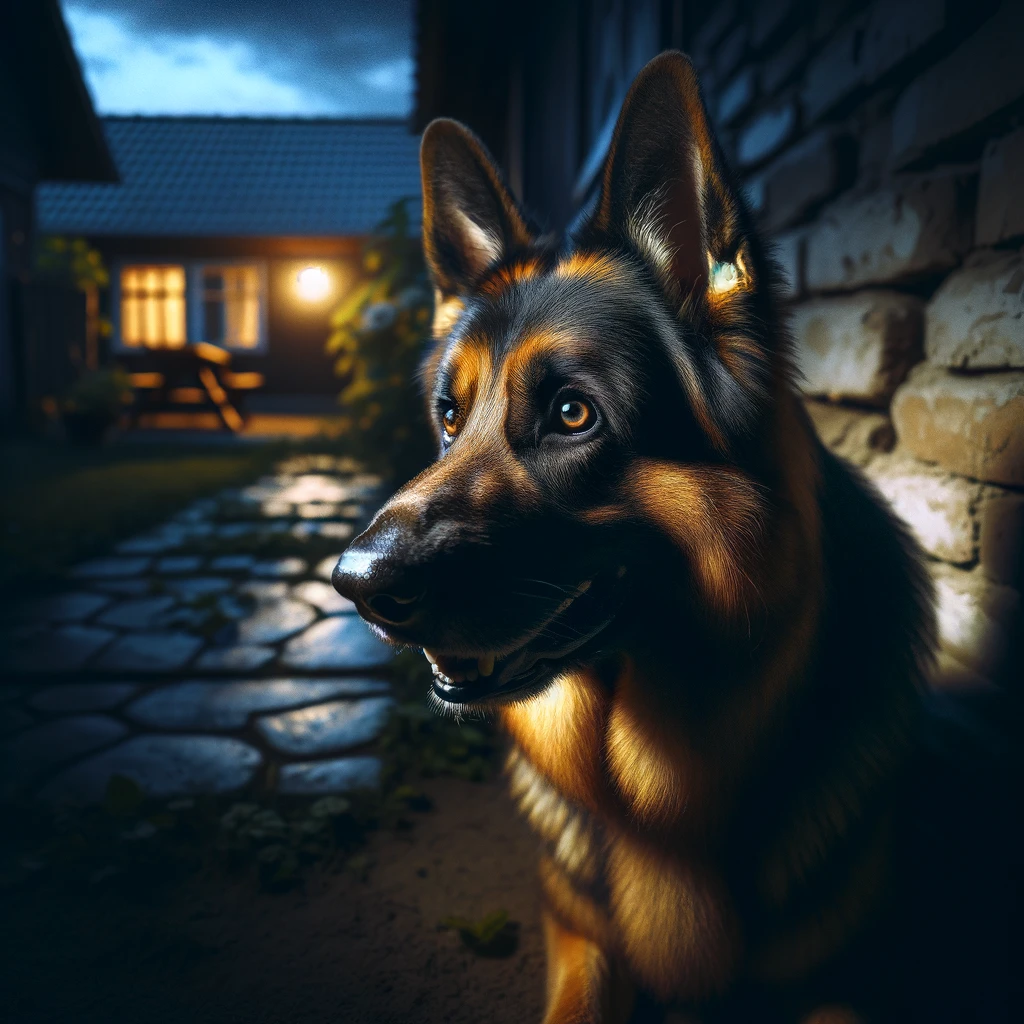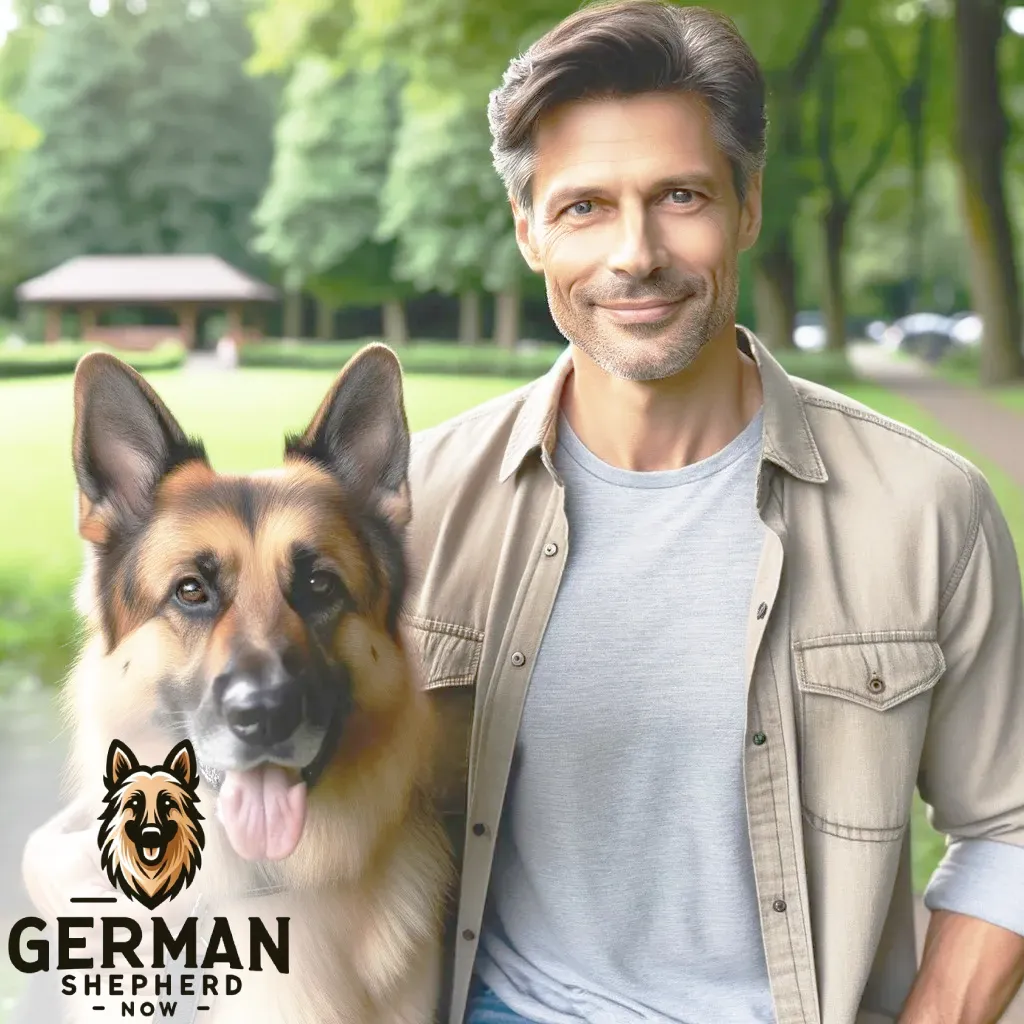Can German Shepherds See in the Dark

Yes, German Shepherds can see in the dark better than humans, thanks to their eye structure and higher concentration of rod cells in their retinas.
They cannot see in complete darkness and rely on some light, like moonlight or streetlights.
Night Vision Capabilities of German Shepherds
German Shepherds are amazing dogs known for their intelligence and versatility. But one question that often comes up is about their night vision.
Can these dogs see well in the dark? Let’s find out.
The Anatomy of Canine Eyes
The secret to a German Shepherd’s ability to see in the dark lies in the unique structure of their eyes. Their pupils are larger than ours so they can let in more light. This is helpful in low-light conditions.
Plus, they have a particular layer in their eyes called the tapetum lucidum. This layer acts like a mirror, reflecting light through their eyes. This makes their night vision much better.
Rod-Dominated Retinas
In their eyes, German Shepherds have more rod cells than cone cells. Rod cells are great for seeing in low light and noticing moving things.
This means these dogs are good at spotting things in the dark, especially if they are moving.
Wide Field of Vision
Another cool thing about German Shepherds is that they can see more around them than we can. They have a field of vision between 220 and 240 degrees.
For us, it’s about 180 degrees. This wide view helps them to see more of their surroundings without moving their heads.
How They Perceive Color
Like most dogs, German Shepherds see the world than we do. They see blues and yellows. This is because they have two types of color receptors, unlike humans who have three.
This color vision isn’t as important at night but still affects how they see things when there’s little light.
Seeing in Complete Darkness
Even though German Shepherds have good night vision, they can’t see if it’s dark. They need some light, like from the moon or streetlights, to see.
In complete darkness, they rely on their other strong senses, like smell and hearing.
Changes in Vision with Age
As German Shepherds get older, their night vision might get worse. This is due to regular changes in their eyes, like cataracts. That’s why keeping up with vet visits as they age is essential.
Importance of Nutrition for Eye Health
What German Shepherds eat can also affect their eyes. Foods rich in vitamins and Omega-3 fatty acids are good for keeping their eyes healthy. This means they can keep seeing well, even in low light, as they age.
Adapting to Low Light
German Shepherds are smart and can learn to move around and do things even when it’s not very bright. Training them to be confident in low-light situations can help them better use their night vision and other senses.
Training for Low Light Environments
Therefore, German shepherds’ effectiveness in excelling on tasks under darkened conditions relies on extensive conditioning, leveraging their sensory aptitudes into reliable behaviors through training repetitions in low light.
Introducing controlled environmental challenges forms trust and confidence to respond to changing visibility and contrasts.
Supporting Eye Health
German Shepherd owners must prioritize preventative eye health to maximize lifespans and maintain peak natural visual capacities, including responsive night vision.
High-quality diets deliver antioxidants from pigmented fruits and vegetables, supporting retina health.
In Conclusion
German Shepherds have good night vision thanks to the unique design of their eyes and more rod cells. They can’t see in total darkness but do well in dim light.
Taking care of their eyes with good food and regular check-ups is essential. These fantastic dogs can adapt well to different light conditions, making them great companions, even at night.

I’m Martin, and I grew up in the super cool city of Seattle. You know, the place with all the incredible mountains and forests? Yeah, that’s my playground!
Ever since I was little, I’ve been all about nature. I used to wander around the woods with a notebook, doodling all the cool plants and animals I’d find.
